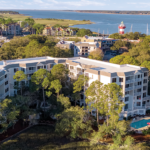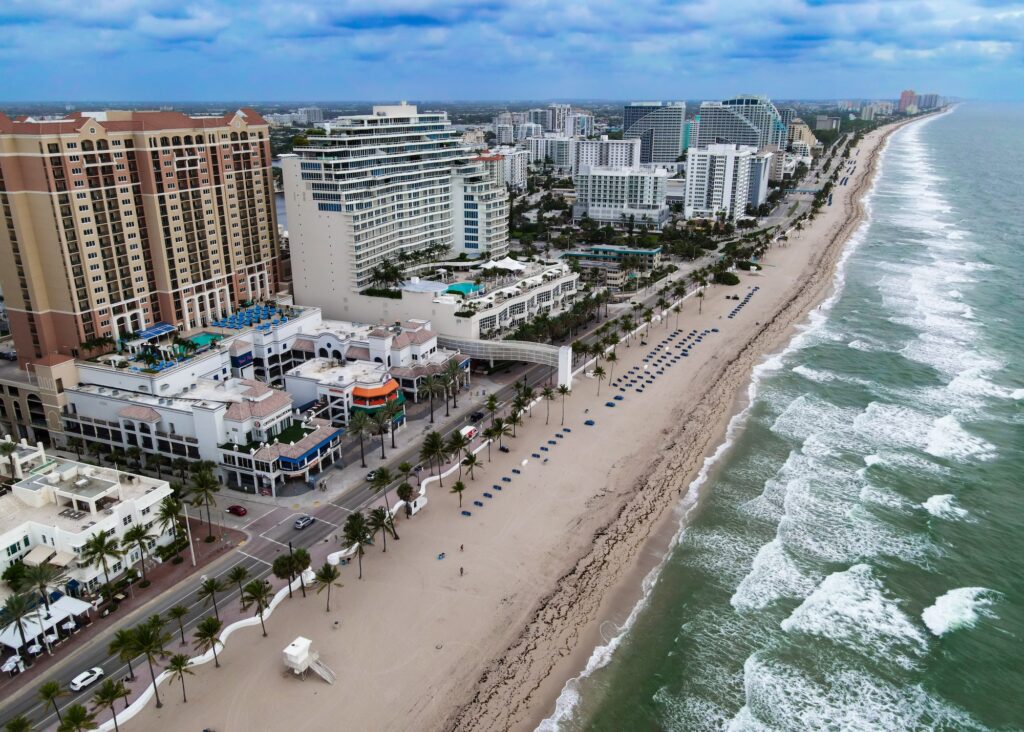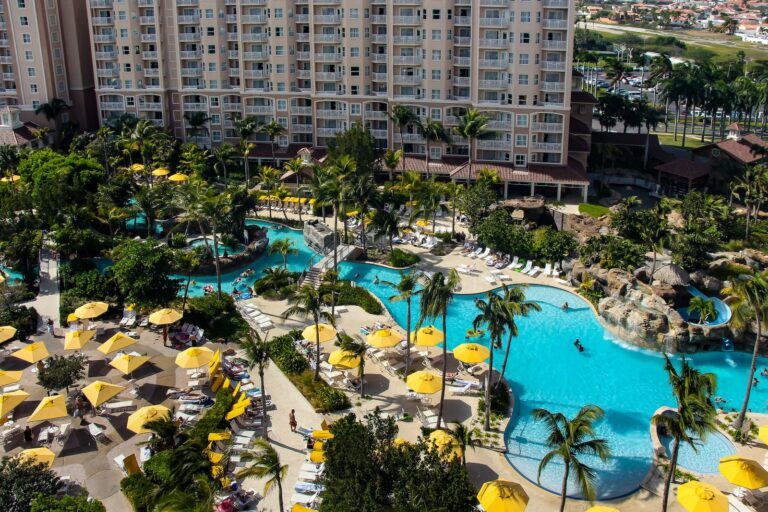If you’re looking into selling a Marriott timeshare or buying a Marriott resale, you may be wondering about Marriott’s Right of First Refusal (ROFR) policy. Right of First Refusal is a contractual clause which states that Marriott will have the first opportunity to purchase a property back from an owner trying to sell to a third party.
Navigating the ROFR process as a buyer or seller simply requires some additional knowledge, and this article we’ll aim to demystify the process. Let’s take a closer look at how this process works, how it can affect both buyer and seller, and what expert recommendations to keep in mind throughout the transfer.
Things to Know About Right of First Refusal
Although there are a few exceptions, most Marriott Vacation Club properties will have to go through Marriott’s Right of First Refusal process. To start the process, a seller must first be in contract to sell their ownership. Once a purchase agreement is signed between a buyer and a seller, the closing company will need to forward the purchase agreement contract to Marriott directly.
Marriott will then have 15 to 30 days to review the agreement and respond. Marriott can choose to exercise their right or waive their right of first refusal. If they choose to exercise their right, Marriott will replace the buyer and purchase the property with the exact same terms as is shown in the purchase agreement. This includes the purchase price and all other transfer terms such as when the buyer is responsible to take over maintenance fees. If they choose to waive their right, the transfer to the buyer on the secondary market can resume.
This process can affect how long it takes to transfer the property to a new owner, although Marriott does try to move through the process quickly and typically responds within approximately 10 days. If Marriott does not respond in the 30 days, by default – they waive their Right of First Refusal and the sale will be able to continue with the original buyer.
Which Marriott Resorts Are Not Subject to Right of First Refusal?
Certain Marriott Vacation Club properties do not have a ROFR. For those looking to avoid the Right of First Refusal all together, resorts that do not have a ROFR include:
 | Marriott Desert Springs 1 | Palm Desert, CA | |
 | Marriott Fairway Villas | Galloway, NJ | |
 | Marriott Frenchman's Cove | St. Thomas, VI | |
 | Marriott Harbour Club | Hilton Head Island, SC | |
 | Marriott Harbour Point | Hilton Head Island, SC | |
 | Marriott Heritage Club | Hilton Head Island, SC | |
 | Marriott Monarch | Hilton Head Island, SC | |
 | Marriott Royal Palms | Orlando, FL | |
 | Marriott Sabal Palms | Orlando, FL | |
 | Marriott Streamside | Vail, CO | |
 | Marriott Sunset Pointe | Hilton Head Island, SC |
If none of the above properties are of interest to you, using a qualified and experienced broker will give prospective buyers the opportunity to move through the ROFR process swiftly.
Seller’s Frequently Asked Questions
Why Does Marriott Have a Right of First Refusal Clause in their Contracts?
Many of the name-brand timeshare developers have a Right of First Refusal clause in the contract that is signed when originally purchasing a property from them.
When a developer chooses to exercise its Right of First Refusal, it often signals that the proposed sale price is deemed too low. However, price isn’t always the sole consideration. There are instances where a developer may opt to repurchase specific properties from owners to address inventory needs or other internal requirements.
The main purpose of the Right of First Refusal is to safeguard the interests of timeshare owners. By enabling developers to step in if resale prices dip too low, this mechanism helps to preserve the overall value of similar ownerships. This in turn creates a more stable market, ensuring that owners are not placed in a position where they feel forced to sell below value, while also providing a reliable and equitable environment for future transactions.
If Marriott Exercises Their Right to Purchase My Property, How Am I Affected?
When a developer exercise their right to purchase the property, they take on all obligations specified in the purchase agreement. This includes providing payment for the property at the agreed-upon price, as well as fulfilling any additional terms, such as covering outstanding maintenance fees.
The seller remains responsible for completing the ownership transfer as outlined in the agreement. Once the transfer process is finalized, the seller will receive the agreed sale amount through escrow. Regardless of whether Marriott or the original buyer finalizes the transaction, sellers know exactly what price and terms to expect once their purchase agreement is signed.
Can I Start the Right of First Refusal Process without Having a Signed Purchase Agreement with a Buyer?
In order to start the Right of First Refusal process, a purchase agreement that is signed by both a buyer and a seller will need to be sent to Marriott. Sellers must first successfully market and sell their ownership on the resale market.
Buyer’s Frequently Asked Questions
Right of First Refusal, or ROFR, can bring a lot of questions, especially if Marriott chooses to exercise their right to purchase the property from the existing owner. So let’s take a look at some of the most common questions that may occur when Marriott exercises their Right of First Refusal.
Do I Get My Money (Deposit) Back?
Any money that buyers put down as a deposit will be returned to them if Marriott chooses to exercise their Right of First Refusal. If the potential buyer went through a broker, then that money will be held with the closing company during this process. If Marriott decides to exercise Right of First Refusal, the closing company will be notified and will then return the money back to the buyer.
Can I Try to Buy Again?
Buyers are always welcome to try to buy again if Marriott exercised their Right of First Refusal. The best solution to those looking to purchase Marriott would be to go through a broker for their next transaction. Utilizing a broker will help potential buyers find the resale property that will best fit their vacationing needs. A broker will also assist buyers as a consultant in regards to current market conditions, to help prevent Marriott from exercising ROFR on their next resale purchase.
Does That Mean My Price Was Too Low?
Usually if Marriott exercises their Right of First Refusal it does mean that the price was too low. This, however, is not always the case. There are sometimes instances where the developer will need to buy certain properties back from owners for inventory purposes, although this is not as common as the price simply being low.
It is important to note that Right of First Refusal is in place to protect Marriott owners. Marriott having the ability to buy properties back from owners when the resale price is too low, ensures that the unit will stay valuable. This will prevent owners from being forced to sell at prices that are too low later on.
How Much More Should I Offer on My Next Attempt to Buy?
How much to offer on a property is always situational. The cost of a property will be based on the home resort, current market conditions, and the thresholds of Right of First Refusal. This is another instance where having a timeshare broker will allow for buyers to get what they want at the right price. Brokers have the knowledge and experience to understand the current market circumstances and ROFR thresholds.
Conclusion
Although the process of Right of First Refusal might seem complex, with a little knowledge and patience you can navigate the process seamlessly. Having the right broker behind a potential buyer will make all the paperwork and contracts go smoothly, and will lessen the chances that Marriott will exercise their Right of First Refusal. Once the Right of First Refusal is waived, soon to be owners will be one step closer to paradise!




